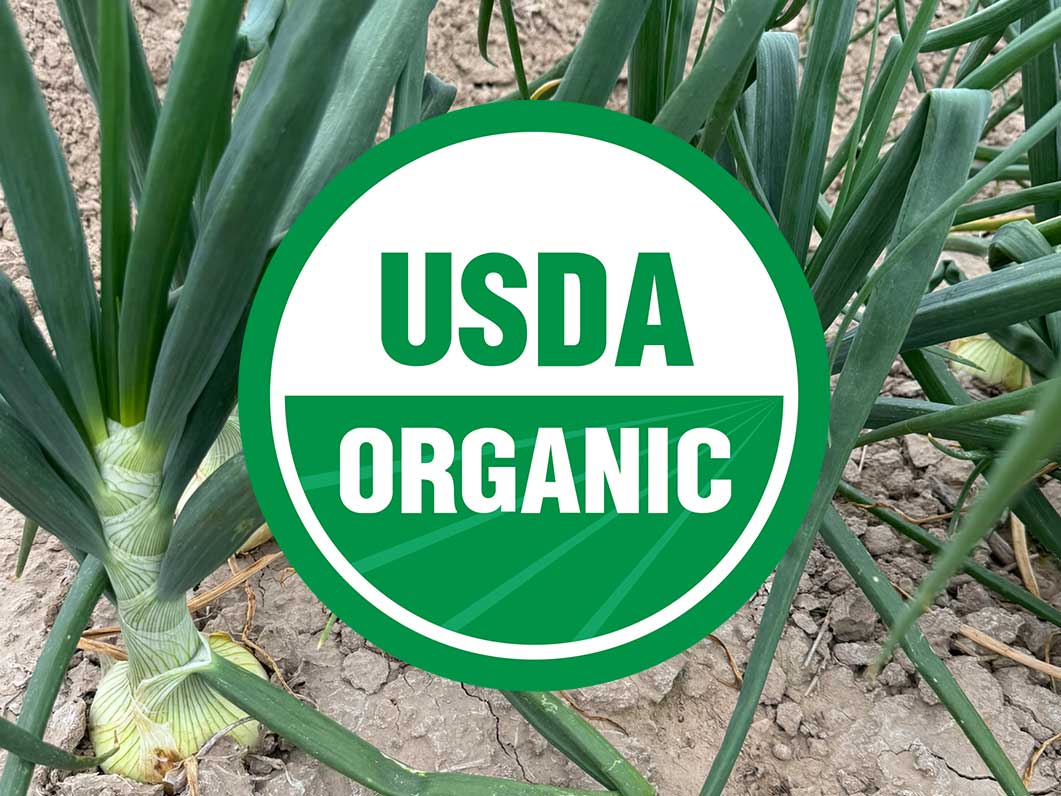
To assist producers transition to organic production, the USDA announced recently new programs, partnerships, grant awards and an additional $10 million in funding to expand the markets for organic products.
According to a May 16 USDA release, the programs will “support development of new and better markets for domestic organic products, provide hands-on training to producers transitioning to organic production and ease the financial burden of obtaining organic certification.”
“Offsetting the costs for organic transition helps more farmers realize higher margins sooner while giving consumers more access to high-demand organic products,” Ag Secretary Tom Vilsack said. “The partnerships and technical support we offer will ease the transition for producers, and the investments in grant projects we are announcing today will reduce the organic industry’s reliance on imports, lower cost barriers for businesses transitioning to organic, and address crucial infrastructure needs. Together, these resources ensure small and mid-sized producers can gain access to new, profitable markets and further our commitment to maximize American farmers’ share of the food dollar.”
The announcement “builds on USDA’s comprehensive approach to supporting local and regional food systems, expanding access to markets to more producers, and increasing the affordable food supply for more Americans while promoting climate-smart agriculture and ensuring equity for all producers,” the release said. “USDA recognizes that smaller and mid-sized food and farm businesses are essential to a strengthened food supply chain.”
Launched in 2022, the Organic Transition Initiative (OTI) offers a suite of programs and resources to help existing organic farmers and those transitioning to organic production and processing. Other efforts under OTI include AMS’ National Organic Program’s Transition to Organic Program, or TOPP. TOPP “builds mentorship relationships between transitioning and existing organic farmers to provide technical assistance and wrap-around support in six U.S. regions. Additionally, USDA’s Risk Management Agency administers federal crop insurance products, including Whole Farm Revenue Protection and Micro Farm, which may be good options for organic producers,” the release said.
On May 16 AMS also awarded approximately $24.8 million for 23 grant projects through the Organic Market Development Grant program. These projects will “support the development of new and existing organic markets to increase the consumption of domestic organic agricultural products,” the release said. “The projects funded through this program so far, are anticipated to benefit more than 49,000 producers and over 118 million consumers by increasing organic market opportunities.”
USDA has made an additional $10 million available through the program. Awards for this funding will be selected from the existing applicants and will be announced this summer.
The USDA’s Natural Resources Conservation Service is awarding $5 million to Oregon Tilth and Organic Farming Research Foundation to strengthen organic expertise for conservation program assistance and expand relationships among producers wanting to transition to organic. The Foundation will disseminate the latest in organic research and national training to NRCS staff and Oregon Tilth will establish six organic specialists who will support producers through regional networks and hands-on organic training, and support NRCS staff who assist farmers transitioning to organic.
Through the Organic Certification Cost Share Program, USDA’s Farm Service Agency will cover up to 75 percent of organic certification costs at a maximum of $750 per certification category.
OCCSP provides cost-share assistance to producers and handlers of organic agricultural commodities for expenses incurred obtaining or maintaining organic certification under USDA’s NOP. Eligible OCCSP applicants include any certified organic producers or handlers who have paid organic certification fees to a USDA-accredited certifying agent.
Cost share assistance covers expenses including application fees, inspection costs, fees related to equivalency agreement and arrangement requirements, inspector travel expenses, user fees, sales assessments and postage. OCCSP pays a maximum of $750 per certification category for crops, wild crops, livestock, processing/handling, and state organic program fees (California only).
Organic producers and handlers should apply for OCCSP by the Oct. 31, 2024, deadline for eligible expenses incurred from Oct. 1, 2023, to Sept. 30, 2024. FSA will issue payments as applications are received and approved. To apply, producers and handlers should contact FSA at their local USDA Service Center and be prepared to provide documentation of organic certification and eligible expenses. OCCSP applications can be submitted to USDA or through participating state departments of agriculture, but not both. For more information, visit the OCCSP webpage.
FSA also is accepting applications from state departments of agriculture to administer OCCSP. FSA posted a funding opportunity summary on grants and will electronically mail the Notice of Funding Opportunity to all eligible state departments of agriculture. Applications from state departments are due July 12, 2024.
Organic producers and handlers should apply for OCCSP by the Oct. 31, 2024, deadline for eligible expenses incurred from Oct. 1, 2023, to Sept. 30, 2024. FSA will issue payments as applications are received and approved.
To apply, producers and handlers should contact FSA at their local USDA Service Center and be prepared to provide documentation of organic certification and eligible expenses. OCCSP applications can be submitted to USDA or through participating state departments of agriculture, but not both. For more information, visit the OCCSP webpage. For more information, visit www.farmers.gov/organic.


